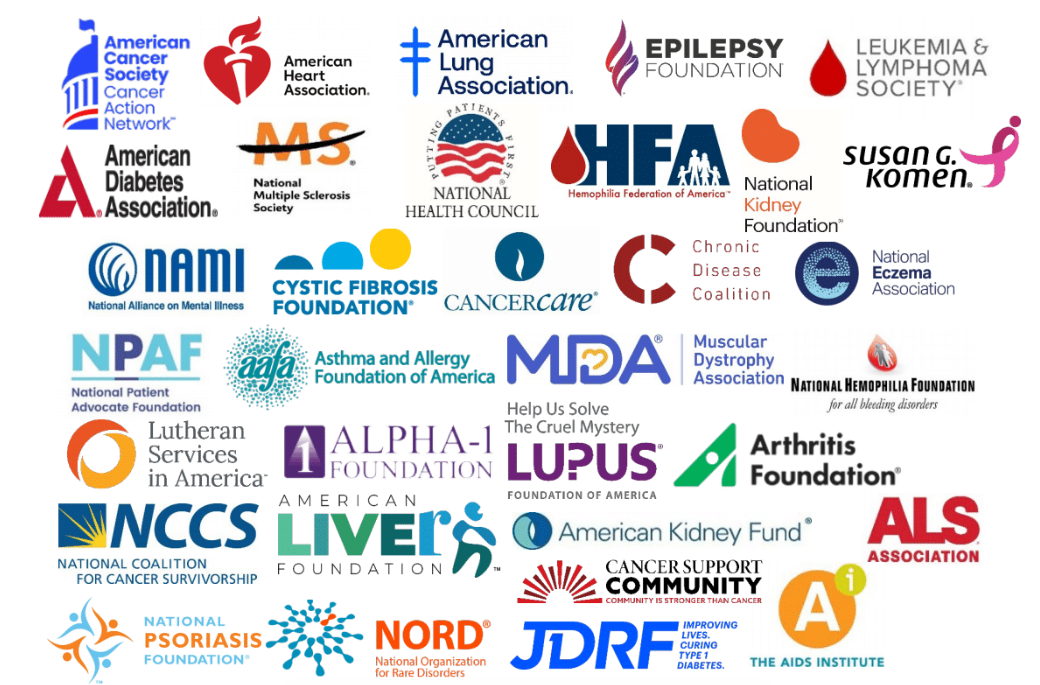NCCS Urges President Biden and Congress to Support and Protect Medicaid
This week, NCCS joined with more than 30 patient advocacy organizations as part of the Partnership to Protect Coverage to urge President Biden and Congress to support and protect the Medicaid program during any upcoming fiscal discussions. The letter calls on the White House and Congress to reject changes to Medicaid’s current financing structure and any proposals that would add barriers to coverage.
“Medicaid provides quality, affordable healthcare coverage for low-income children, adults, pregnant individuals, people with disabilities, and seniors. Any changes to Medicaid’s financing structure like per capita caps or alterations to the federal medical assistance percentage (FMAP), as well as the addition of any barriers to coverage like work requirements, would harm all of the individuals in these groups.”
“Medicaid provides quality, affordable healthcare coverage for low-income children, adults, pregnant individuals, people with disabilities, and seniors. Any changes to Medicaid’s financing structure like per capita caps or alterations to the federal medical assistance percentage (FMAP), as well as the addition of any barriers to coverage like work requirements, would harm all of the individuals in these groups.”
Thanks to the Affordable Care Act, more than 20 million people have gained health care coverage through Medicaid expansion. Patients in states that have expanded Medicaid experience additional benefits. For instance, Medicaid expansion states have experienced an increase in early stage cancer diagnoses, when cancer is more treatable, and overall cancer survival rates. Medical debt is also lower in states that expanded Medicaid. As of late last year, more than 91 million people were enrolled in Medicaid or CHIP, and uninsured rates reached record lows during the pandemic.
Read the letters below or download here: Congress, White House

Partnership to Protect Coverage Letter to Congress
March 23, 2023
The Honorable Charles Schumer
U.S. Senate
322 Hart Senate Office Building
Washington, DC 20510
The Honorable Mitch McConnell
U.S. Senate
317 Russell Senate Office Building
Washington, DC 20510
The Honorable Kevin McCarthy
U.S. House of Representatives
2468 Rayburn House Office Building
Washington, DC 20515
The Honorable Hakeem Jeffries
U.S. House of Representatives
2433 Rayburn House Office Building
Washington, DC 20515
On behalf of the millions of patients and consumers across the country who face serious, acute, and chronic health conditions, our organizations urge you to be unwavering in your support for the Medicaid program and protect Medicaid alongside Medicare and Social Security during any upcoming fiscal discussions. Any efforts to change Medicaid’s current financing structure or add any barriers to coverage must be rejected.
Thanks to the Affordable Care Act, which was signed into law 13 years ago today, more than 20 million people have gained healthcare coverage through Medicaid expansion.1 Our country has made significant progress in increasing access to coverage over the past few years and it is critical that we do not jeopardize that progress in upcoming fiscal discussions.
In March 2017, our organizations agreed upon three overarching principles2 to guide any work to reform and improve the nation’s healthcare system. These principles state that: (1) healthcare should be accessible, meaning that coverage should be easy to understand and not pose a barrier to care; (2) healthcare should be affordable, enabling patients to access the treatments they need to live healthy and productive lives; and (3) healthcare must be adequate, meaning healthcare coverage should cover treatments patients need, including all the services in the essential health benefit (EHB) package.
Medicaid provides quality, affordable healthcare coverage for low-income children, adults, pregnant individuals, people with disabilities, and seniors. Any changes to Medicaid’s financing structure like per capita caps or alterations to the federal medical assistance percentage (FMAP), as well as the addition of any barriers to coverage like work requirements, would harm all of the individuals in these groups.
Here are just a few stories from the patient we represent about why Medicaid is so important to the health and financial security of them and their families:
I have stage 4 lung cancer. Not only was I extremely shocked and devastated by my diagnosis, but I was also worried because I didn’t have health insurance as I was about to embark on a new career. My first thought was that I still needed to be here to finish raising my kids, who at the time were 19 and 11. A social worker started the process for me to get coverage through Medicaid. In the first year and a half after my diagnosis, I had 6 rounds of chemotherapy, 10 rounds of radiation and 3 surgeries – which came to over 30 days in the hospital. All of which was paid for by Medicaid. I know I would not be here more than 11 years later without Medicaid. – Lysa from Florida
My daughter, Marie, is on Medically Dependent Children’s Program Waiver in Texas – she is an extremely fragile and medically complex child. This program provides a variety of services for Marie and our family including skilled nursing, respite, secondary insurance through Medicaid, therapies (physical therapy, occupational therapy, speech therapy), and a case coordinator who makes sure that all of Marie’s medical needs are addressed. I cannot stress enough how important it was been to receive the skilled nursing! Not only has this allowed us to be able to work (and sleep occasionally!), but it has also kept Marie out of the hospital on countless occasions. And the ability to receive therapies twice a week has been critical to maintaining skills. Medicaid has allowed us to take better care of our daughter and still lead productive lives. -Yssa from Texas
I’m a student at Kennesaw State University and I’m also a cancer survivor due to Medicaid. My parents fled Vietnam for a better life in America. As first-generation citizens, they didn’t speak English well, but they were very hard working and paid their taxes. Medicaid kept me and my sisters heathy and gave us a sense of security. But then when I was 17, I was diagnosed with stage 2 non-Hodgkin’s lymphoma. Because of Medicaid, I was able to catch my cancer early. I went through 12 rounds of chemotherapy and today, I am cancer free. Without insurance, the cost of treatment would have ruined my family. My family will always be grateful for Medicaid for saving my life and keeping all of us healthy. – Cindy from Georgia
I have been on Medicaid since I was 16, and I continue to be on it as it is the only insurance that I can afford and that will cover most of my medical bills. When hospitalizations are necessary, these can cost hundreds of thousands of dollars per stay; which is something neither I nor even a wealthy person could ever afford. I have had anywhere from 3-6 hospital stays per year due to cystic fibrosis (CF), so Medicaid is extremely important for me to be able to receive the necessary health care to stay alive. CF is a lifelong disease thus requiring lifelong insurance, unlike acute health challenges. – Abigail from North Carolina
Our organizations once again urge you to support the Medicaid program and protect Medicaid alongside Medicare and Social Security during any upcoming fiscal discussions. Thank you for your consideration.
Sincerely,
ALS Association
American Cancer Society Cancer Action Network
American Diabetes Association
American Heart Association
American Kidney Fund
American Liver Foundation
American Lung Association
Arthritis Foundation
Asthma and Allergy Foundation of America
Cancer Support Community
CancerCare
Chronic Disease Coalition
Cystic Fibrosis Foundation
Epilepsy Foundation
Hemophilia Federation of America
JDRF
Lutheran Services in America
Muscular Dystrophy Association
National Alliance on Mental Illness
National Coalition for Cancer Survivorship
National Eczema Association
National Health Council
National Hemophilia Foundation
National Kidney Foundation
National Multiple Sclerosis Society
National Organization for Rare Disorders
National Patient Advocate Foundation
National Psoriasis Foundation
Susan G. Komen
The AIDS Institute
The Leukemia & Lymphoma Society
References
1 Department of Health and Human Services. New Reports Show Record 35 Million People Enrolled in Coverage Related to the Affordable Care Act, with Historic 21 Million People Enrolled in Medicaid Expansion Coverage. April 29, 2022.
2 Partnership to Protect Coverage (PPC) Consensus Healthcare Reform Principles




